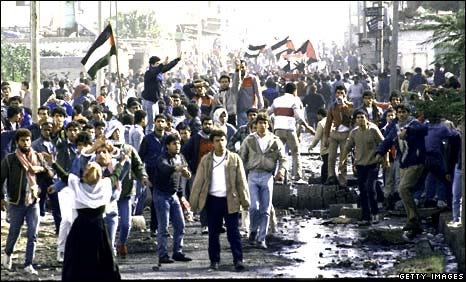Bringing Palestinian Society Back In
Listen to a symposium with the authors of fascinating new journal special issue
An important study of trends in Middle East political science publishing by Melani Cammett and Isabel Kendall identified 222 articles published in a set of top political science journals between 2000-2019. Of those, Wendy Pearlman observes in her introduction to new special issue of Middle East Law and Governance, “only two articles—less than one percent of the total in the dataset—focused on Palestine as a case in which domestic politics and society were worthy of study in their own right.” That’s not the case in other disciplines, in my experience, but it’s quite striking for political science considering the centrality of Palestine within the politics of the Middle East.
This new special issue seeks to correct for that by centering Palestinian society within political analysis, and to push back against the tendency to treat Palestinian politics as exceptional in ways that place it beyond comparative analysis. I convened the authors of the six articles in the special issue for a roundtable-style episode of the Middle East Political Science Podcast. Their articles range widely, from protests and new forms of civil society to political attitudes towards violent resistance strategies and the Palestinian police to the de-development of the Palestinian health care sector. It’s an outstanding group of young scholars who combine deep experience on the ground with innovative theoretical and methodological perspectives. You can listen to it here (hopefully - this is my very first attempt to embed our podcast on the blog, so let’s hope for the best!):
Here’s the articles we discussed:
Wendy Pearlman, “Putting Palestinian Agency First.” Pearlman makes the case for centering Palestinian society in analysis, rather than primarily focusing on Palestinians in relation to Israel or even in the context of the para-statal institutions of the Palestinian Authority. She, and the other authors, sees the diversity of Palestinian society extending through the West Bank, Gaza, Jerusalem, Israel proper, refugee communities across the Middle East and beyond, but stress “what, as the May 2021 protests illustrated, they nevertheless share: the general contours of a historical narrative defining their relationship to their homeland and an ongoing struggle for the right to self-determination, equality, and freedom.” She looks back across the long history of Palestinian collective action and mass protests to show the agency inherent in society, highlighting the 1936 Great Revolt, the 1987 Intifada, and the 2018 Gaza March of Return along with the 2021 protests which frame the collection.
Alexei Abrahams and Etienne Maynier, “Measuring the (In)Security of Palestinian Civil Society Websites.” With civil society organizations so central to Palestinian organization and political life in the absence of a state and the inefficacy of the Palestinian Authority, Abrahams and Maynier test their websites for security vulnerabilities. They find many. As Abrahams argued in his contribution to a recent POMEPS Studies collection, these insecurities are especially significant in the context of digital authoritarianism and Israel’s intensive use of cybersurveillance technologies.
Dana el-Kurd, “Support for Violent Versus Non-Violent Strategies in the Palestinian Territories.” Drawing creatively on surveys conducted for the Arab Opinion Index, el-Kurd develops surprising and counterintuitive findings on which Palestinians are more likely to support violent strategies against the Israeli occupation. Typically, she argues, the literature suggests that strong social cohesion makes non-violent strategies more attractive because individuals have greater confidence that the strategy will gain widespread cooperation and thus be more likely to succeed. But she notes a gap between perceptions of social cohesion and individual social embeddedness which generates unexpected patterns. Those who personally enjoy more social embeddedness and are more networked politically may gain more information about the realities of broader trends of low social cohesion, and thus support violent strategies because they know that non-violent strategies will likely fail.
Yara Asi, “Palestinian Dependence on External Health Services: De-Development as a Tool of Dispossession.” This fascinating paper examines the Palestinian health care sector as an ideal window into broader patterns of the limitations of Palestinian development under occupation. Drawing on Sara Roy’s concept of “de-development,” she traces the systematic obstacles to Palestinian health care through blockade and occupation. The need to seek needed health care abroad creates and exacerbates societal inequalities, while exposing the inadequacies of the Palestinian Authority and also serving as a driver of dispossession.
Diana Greenwald and Mark Tessler, “After the Uprising: The Intifada-Oslo Generation and Attitudes toward the Palestinian Police.” Drawing on a wide range of surveys conducted between 1996-2000, Greenwald and Tessler find striking differences in the evaluation of the Palestinian police forces. Men who came of age during the Intifada and Oslo systematically held more negative views of the Palestinian police than did Palestinians of other generations — or did Palestinian women of the same generation. They trace these attitudes to the life-shaping experiences of the Intifada uprising and the subsequent formation of the Palestinian Authority, and to their perceptions of the conditions under which different forms of coercion are legitimate.
Catherine Herrold, “Curating Sovereignty in Palestine: Voluntary Grassroots Organizations and Civil Society in the West Bank and East Jerusalem.” Herrold’s ethnographic research shows that with formal civil society depoliticized and “NGO-ized”, voluntary grassroots organizations have sprung up across the West Bank and East Jerusalem. She explores how these new, informal organizations seek to avoid the depoliticization which follows from dependence on international grants and programming, while creating alternative spaces for citizens to organize around shared interests where the Palestinian Authority remains largely or completely absent.




